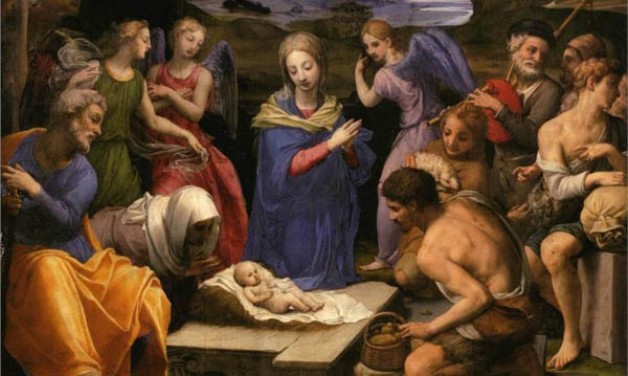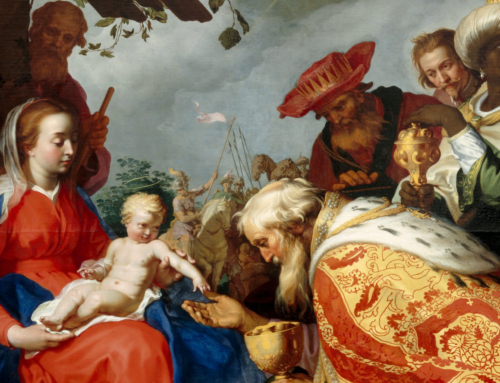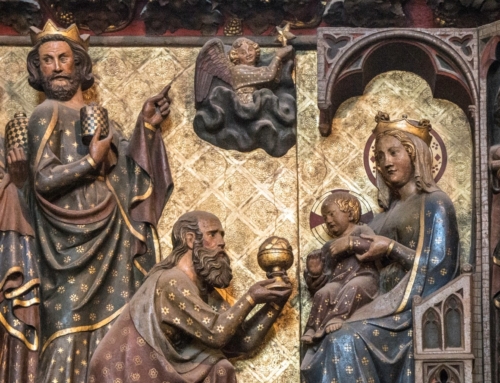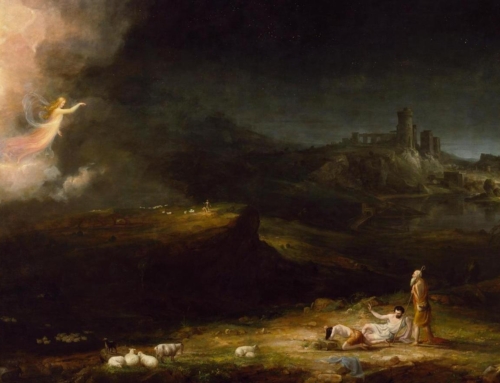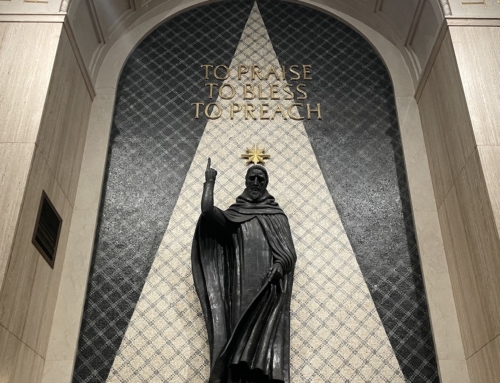O gates lift up your heads
Grow higher ancient doors
That the King of Glory may come in
Who is this King of Glory?
The Lord of Hosts,
He is the King of Glory! (Ps 24:7–9)
In this psalm, as in many other Scripture passages, God is described as coming in power and strength to redeem his people from the bonds of slavery and sin. This is the God who spoke with booming voice in the storm cloud to Moses upon Mount Sinai, and the same God who descended in a pillar of fire to consume the offering made by Elijah to shame the false prophets of Baal. In comparison to these dramatic episodes, the Christmas coming of the Christ child seems a bit understated. Can this little babe really be the King of Glory come to save the world? Why not speak to the world as He had done before?
Here are some reasons why it is fitting that God became man precisely the way that he did:
To manifest his goodness (and ours): God in his very nature is perfect goodness. Even without his creation, God’s goodness is manifest in his very Being. But in his goodness, God chose to communicate himself to the world. In the fullness of time, the Son of God took for himself our common humanity in order to reconcile us with himself. By becoming part of creation, Christ re-affirmed the goodness of creation. And by becoming man, He restored the dignity of man that was once lost in sin.
To speak to us directly: Fashioned in the womb and now born of Mary, the Word of God speaks to us in a manner suited to our human nature. With human words and parables, Christ announced his kingdom and the salvation he came to bring to all men who would receive him. Speaking with divine authority, Christ taught us to be free of the fear of death and the slavery of sin, assuring us that he has won the definitive victory over Satan.
Because of our weakness: Human history reveals a constant struggle of man with frailty and sin. We do the evil we do not want and are too weak to rectify our situation ourselves. No man alone could satisfy for our sins. The Incarnation manifests God’s will, not to leave man in his helpless state, but to make atonement for our sins himself on our behalf. When the Son of God became man, He set us an example by living in weakness and humility, submitting himself in humble obedience to the Father who in turn raised him up in glory.
That we may see God: Despite the many images, visions, and revelations given to the prophets and patriarchs of old, none had the experience of seeing God. On the other hand, when the Son of God took on our human nature, he walked, talked, and lived among men. By his life, death, and resurrection, he who is true God and true man opened the way for us to behold God in his beatitude, face to face, sharing in divine and everlasting life.
In ancient times, God spoke to men through the prophets, but now he has sent his Son to become one with the humanity he came to redeem. In his great goodness, God came to us, not in storm clouds or pillars of fire, but by being born of a virgin in a quiet little town, on a still winter’s night, that we may be saved.
For to us a child is born, to us a son is given;
And his name will be called “Wonderful Counselor,
Mighty God, Everlasting Father, Prince of Peace.”
Of his kingship there will be no end,
Upon the throne of David, and over his kingdom,
To uphold it with justice and with righteousness,
From this time forth and for evermore. (Is 9:6-7)
✠
Image: Agnolo Bronzino, Adoration of the Shepherds

